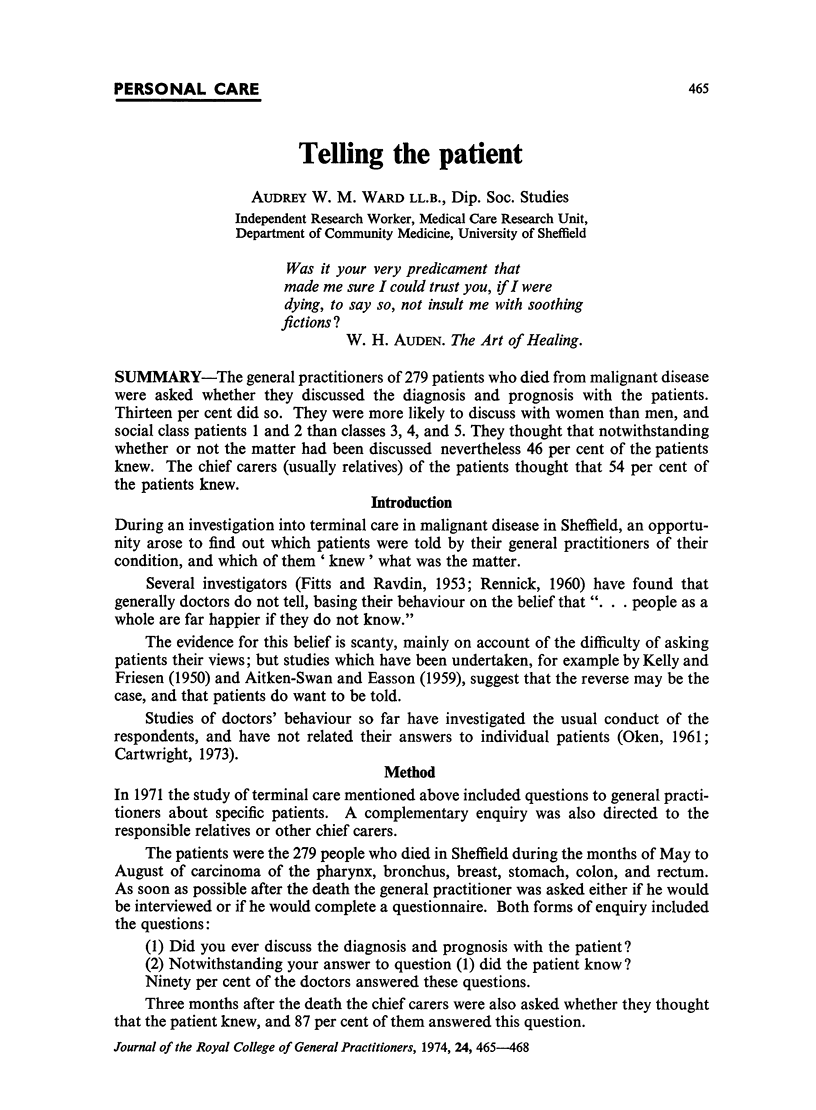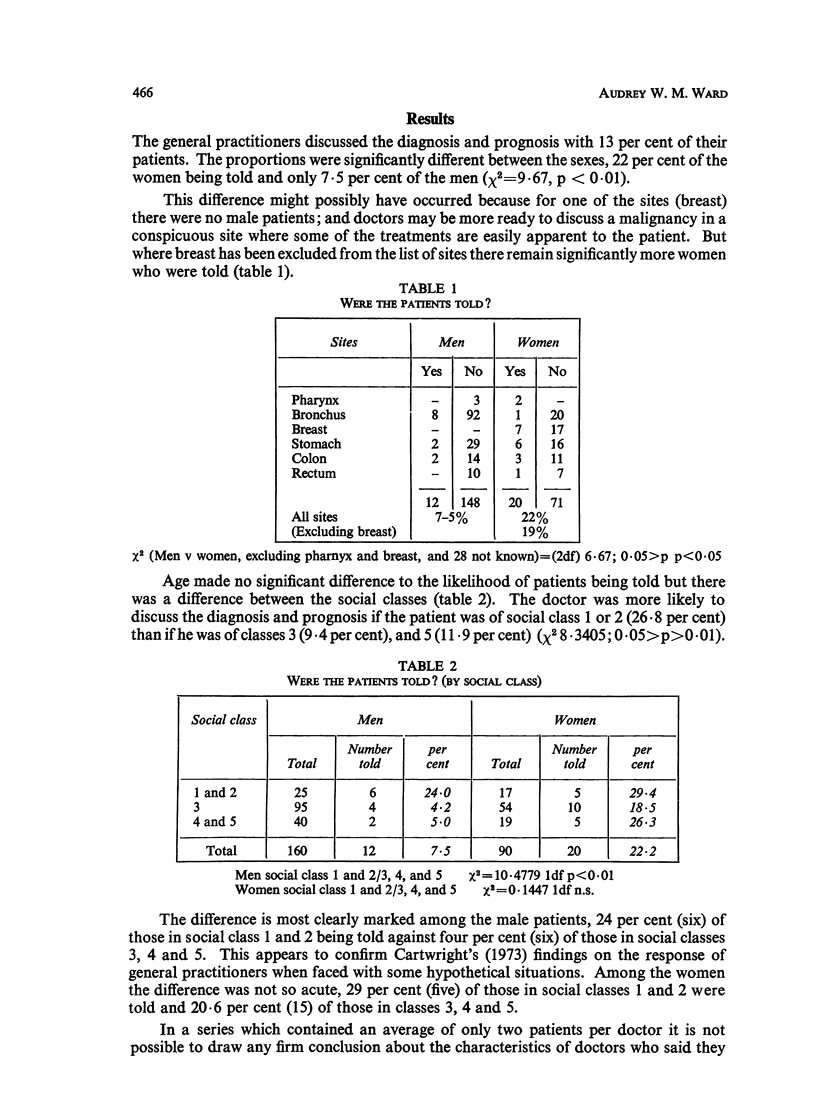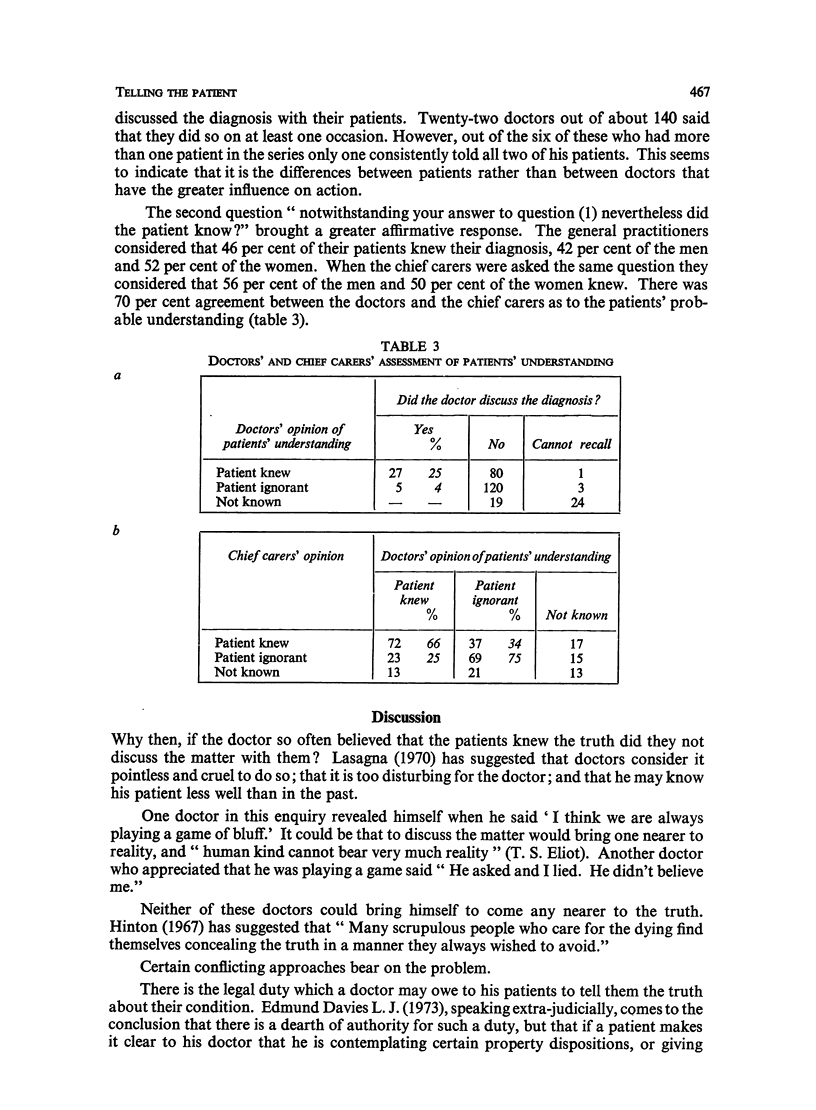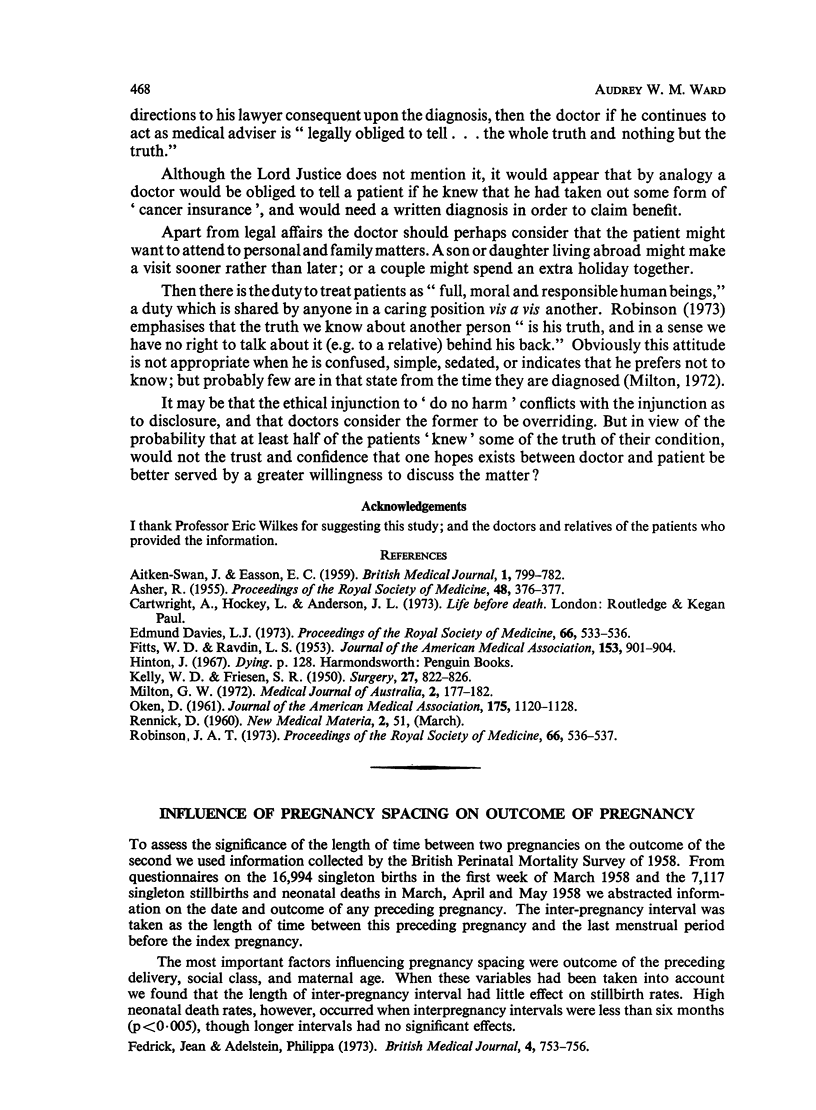Abstract
The general practitioners of 279 patients who died from malignant disease were asked whether they discussed the diagnosis and prognosis with the patients. Thirteen per cent did so. They were more likely to discuss with women than men, and social class patients 1 and 2 than classes 3, 4, and 5. They thought that notwithstanding whether or not the matter had been discussed nevertheless 46 per cent of the patients knew. The chief carers (usually relatives) of the patients thought that 54 per cent of the patients knew.
Full text
PDF



Selected References
These references are in PubMed. This may not be the complete list of references from this article.
- ASHER R. The management of advanced cancer. Proc R Soc Med. 1955 May;48(5):376–377. doi: 10.1177/003591575504800508. [DOI] [PMC free article] [PubMed] [Google Scholar]
- FITTS W. T., Jr, RAVDIN I. S. What Philadelphia physicians tell patients with cancer. J Am Med Assoc. 1953 Nov 7;153(10):901–904. doi: 10.1001/jama.1953.02940270007002. [DOI] [PubMed] [Google Scholar]
- KELLY W. D., FRIESEN S. R. Do cancer patients want to be told? Surgery. 1950 Jun;27(6):822–826. [PubMed] [Google Scholar]
- Milton G. W. The care of the dying. Med J Aust. 1972 Jul 22;2(4):177–182. [PubMed] [Google Scholar]
- OKEN D. What to tell cancer patients. A study of medical attitudes. JAMA. 1961 Apr 1;175:1120–1128. doi: 10.1001/jama.1961.03040130004002. [DOI] [PubMed] [Google Scholar]
- Robinson J. A. The patient's right to know the truth. Proc R Soc Med. 1973 Jun;66(6):536–537. doi: 10.1177/003591577306600619. [DOI] [PMC free article] [PubMed] [Google Scholar]



